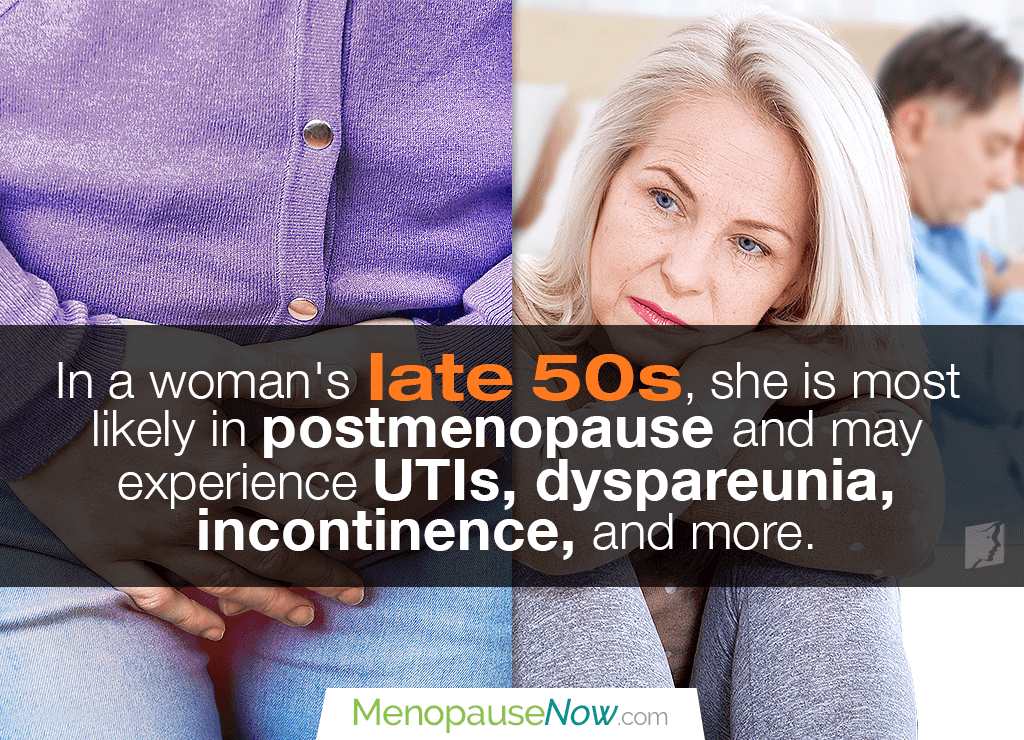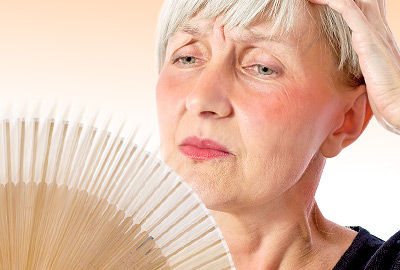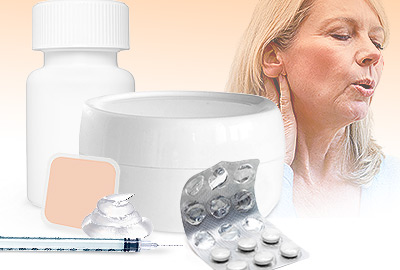When a woman is about to complete her fifth decade of life, symptoms that occurred earlier in the menopause transition may still persist. However, a new group of postmenopause symptoms could prove more harrying consequences if not attended to promptly. Continue reading to learn about menopause symptoms in late 50s, including what can be done to alleviate them before it's too late.
What Stage Am I In?
Women who are in their late 50s are customarily in postmenopause, which is when they have officially passed menopause, the date signifying 12 consecutive months without a period.
Postmenopause hormone levels have officially dropped to their low since the ovaries no longer are releasing eggs, meaning estrogen and progesterone are almost nil.
Even though smaller amounts of hormones are excreted from other body tissues, what is produced is not enough to allay symptoms and promote optimal hormonal health if further action is not taken.
Symptoms of Menopause in Late 50s
Several of the most harrying symptoms plaguing women after their fertile years are:
Urinary tract infections (UTIs)
Not only are UTIs more common in woman than men, but they tend to strike postmenopausal women in particular, especially recurrent UTIs since estrogen deficiency has been scientifically found to play a role in the development of bacteria in the urine.1
Dyspareunia
Vaginal dryness and atrophy due to a lack of estrogen in the genital tract that is not addressed during perimenopause can lead to dyspareunia, or painful sexual intercourse. It is frequently reported by those in their post-fertility years and can cause stress and decreased sexual pleasure, among other complications.2
Incontinence
Affecting more than 50 percent of postmenopausal women, incontinence occurs due to the thinning of the urethra from reduced estrogen levels. Stress, urge, and mixed urinary incontinence are the three main types plaguing aging women.3
Osteoporosis
Osteoporosis is a degenerative bone disease that is closely linked to estrogen deficiency. Although it primarily occurs in women who have been in postmenopause for 10 to 15 years, it is never too late to take preventative measures to promote optimal bone health.4
Weight gain
Weight gain after menopause is due to many factors, not just hormonal influences. They include muscle mass decreasing with age, living a sedentary lifestyle, unhealthy eating habits with a slower metabolism, and more.
Keep in mind that women could still be suffering from the symptoms of menopause from early 40s, menopause symptoms in late 40s and early 50s, as well as a multitude of others resulting from an ongoing hormonal imbalance.
Recommendations
All in all, postmenopausal women should be proactive with their hormonal health by undergoing a treatment regimen.
Postmenopause treatments revolve around the pursuit of an endocrine-friendly lifestyle with an optimized diet, frequent exercise, and healthy habits. When paired alongside alternative medicine proven to bring results, aging women can rest assured they are providing their bodies with the nutrients and care they need for health far into their twilight years.
Sources
- Cleveland Clinic. (2019). Menopause, Perimenopause and Postmenopause. Retrieved October 29, 2019, from https://my.clevelandclinic.org/health/diseases/15224-menopause-perimenopause-and-postmenopause
- Harvard Health Publishing. (2019). Menopause And Perimenopause. Retrieved October 29, 2019, from https://www.health.harvard.edu/a_to_z/menopause-and-perimenopause-a-to-z
- John Hopkins Medicine. (n.d.). Introduction to Menopause. Retrieved October 29, 2019, from https://www.hopkinsmedicine.org/health/conditions-and-diseases/introduction-to-menopause
- Mayo Clinic. (2019). Menopause weight gain: Stop the middle age spread. Retrieved October 29, 2019, from https://www.mayoclinic.org/healthy-lifestyle/womens-health/in-depth/menopause-weight-gain/art-20046058
- National Institute on Aging. (2017). What Are the Signs and Symptoms of Menopause? Retrieved October 29, 2019, from https://www.nia.nih.gov/health/what-are-signs-and-symptoms-menopause
- Santoro, N. et al. (2015). Menopausal Symptoms and Their Management. Endocrinology and Metabolism Clinics of North America, 44(3), 497-515. doi: 10.1016/j.ecl.2015.05.001
Footnotes:
- Raz, R. (2011). Urinary Tract Infection in Postmenopausal Women. Korean Journal of Urology, 52(12), 801-808. doi: 10.4111/kju.2011.52.12.801
- Kao, A. et al. (2008). Dyspareunia in postmenopausal women: A critical review. Pain Research and Management, 13(3), 243-254. Retrieved October 29, 2019, from https://www.ncbi.nlm.nih.gov/pmc/articles/PMC2671314/
- Kołodyńska, G. et al. (2019). Urinary incontinence in postmenopausal women - causes, symptoms, treatment. Przegląd Menopauzalny, 18(1), 46-50. doi: 10.5114/pm.2019.84157
- Meng-Xia, J. & Yu, Q. (2015). Primary osteoporosis in postmenopausal women. Chronic Diseases and Translational Medicine, 1(1), 9-13. doi: 10.1016/j.cdtm.2015.02.006




